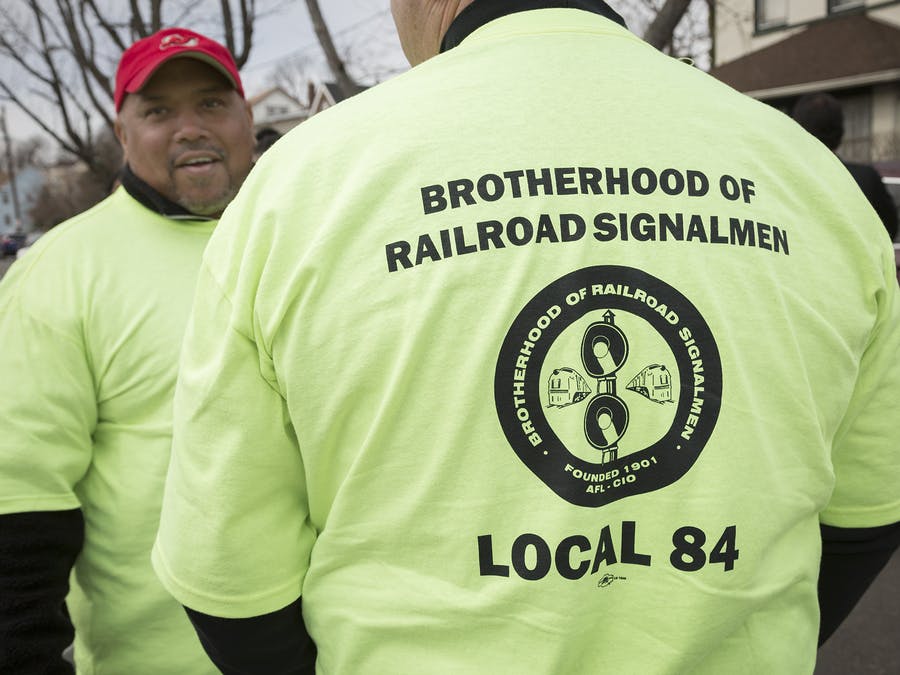The job of supervising employees in a unionized environment has its own unique set of rules and challenges. HR professionals need to provide supervisors with the knowledge and tools necessary to succeed in this special framework. This applies to both experienced supervisors transitioning from a non-union environment, and brand new supervisors. Understanding the very particular principles of the union environment will be key to success.
Universal supervisory principles
First, it’s important to remind supervisors of basic supervisory principles that apply equally to unionized and non-unionized work forces:
- Honesty – Do what you say you will do (keep your word).
- Clear communication – Be clear about expectations and hold people accountable.
- Being open – Genuinely listen to employees’ concerns.
- Respect – Enforce expectations respectfully. Respect is a two-way street.
- Fairness – Treat all employees equally. There can be no perception of favoritism or different treatment.
The collective bargaining agreement
The Collective Bargaining Agreement (CBA) is at the heart of the relationship between the union and the company. This legally binding document governs how the company interacts with unionized employees. Surprisingly, many supervisors lack a basic understanding of their own CBA and instead make decisions based on what they think is “fair.” It’s your job as an HR professional to emphasize the primacy of the CBA.
Your supervisors have to thoroughly understand the CBA. The CBA should always be the first place to look regarding the expectations and duties in any situation, particularly when making work assignments or calling someone in for an extra shift.
The importance of relationships
Most CBAs allow some employees to be designated as “shop stewards,” people who are available on shift to advise and assist their fellow union members regarding the CBA. Cultivating and maintaining a good relationship with the shop stewards and other union officials will pay dividends down the road. Supervisors may disagree with shop stewards on specific issues, but it’s important that they always deal honestly and fairly with them. Having solid relationships improves the supervisor’s effectiveness.
“Just Cause” employment standard
Almost every union contract will have a provision stating that employees can only be disciplined or terminated for “just cause.” This is different from the typical “at will” employment standard in non-union employment relationships. “Just cause” means you need to show that the worker violated some work rule, standard, or expectation, and you were justified in taking action. Here are some considerations supervisors should use in evaluating whether there is “just cause”:
- Was the rule or expectation clearly communicated? For example, these rules might be included in the CBA, an employee handbook, a conspicuously posted notice, or a training session.
- Has the company been consistent in applying the standard? If other workers have engaged in the same conduct without repercussion, you’re on legally shaky ground.
- Have you conducted a fair investigation? Did you speak to witnesses, gather evidence, and listen to the employee’s explanation?
- Is the proposed discipline proportional to the offense? Very serious or egregious offenses could lead to immediate termination, while less serious ones should perhaps result in a verbal or written warning as part of a progressive discipline protocol.
Employee discipline and investigations
In a unionized setting, an employee has the right to request the presence of a union representative whenever the employee is subject to an investigatory interview, which might lead to discipline. This is commonly known as the Weingarten rule. The employee has the right to confer with the representative (typically a shop steward) before the investigatory interview. However, the representative doesn’t have the right to be disruptive or to argue on behalf of the employee. An HR person should always be present in these interviews.
Coaching employees
Sometimes a supervisor can be reluctant to coach employees on performance, especially if the shop steward or other union members seem aggressive or challenging. This is a mistake. The company still controls the work environment and supervisors are held responsible for the results. When a supervisor abdicates this role, poor performance becomes an acceptable standard. Here are some keys points to convey to your organization’s supervisors:
- When you meet to coach an employee, this is not a disciplinary interaction. It’s just a conversation.
- The conversation should occur promptly after the incident that triggered it. Don’t let too much time pass.
- Don’t have the conversation in front of other workers or in public.
- This is about a performance problem and not the employee as a person – discuss the problem and how it compares to the expectation. Be very clear about both the problem and expectation.
- Invite the employee to suggest solutions. This should be an open and two-way conversation.
- Continue to monitor performance and be quick to acknowledge improvements.
- Document, document, document – This is where supervisors often fall short. There’s a saying in employment law that “if it’s not documented, it didn’t happen.”
What about difficult employees?
Occasionally a supervisor may come across an employee who is combative and feels “bullet proof” because of the union protection. Coach supervisors to establish and maintain control in a firm, but professional, manner. Bullies thrive when people are afraid to challenge them. Furthermore, other employees may take their cue from this type of employee, which can quickly make an entire department or organization dysfunctional. The role of the HR professional here is to back up and support the supervisor.
Often this situation arises when the company has been lax about enforcing standards and rules. So, it’s important for the supervisor to make things clear and notify everyone that the rules and standards will be enforced going forward. Insist on respectful conduct from employees and require your supervisors to model that behavior.
Parting thoughts
Supervising unionized employees can seem complicated and challenging. HR has an important role in educating supervisors with a thorough understanding of the legal and practical landscape for union employees. Doing so will set the whole organization on a course for success.
